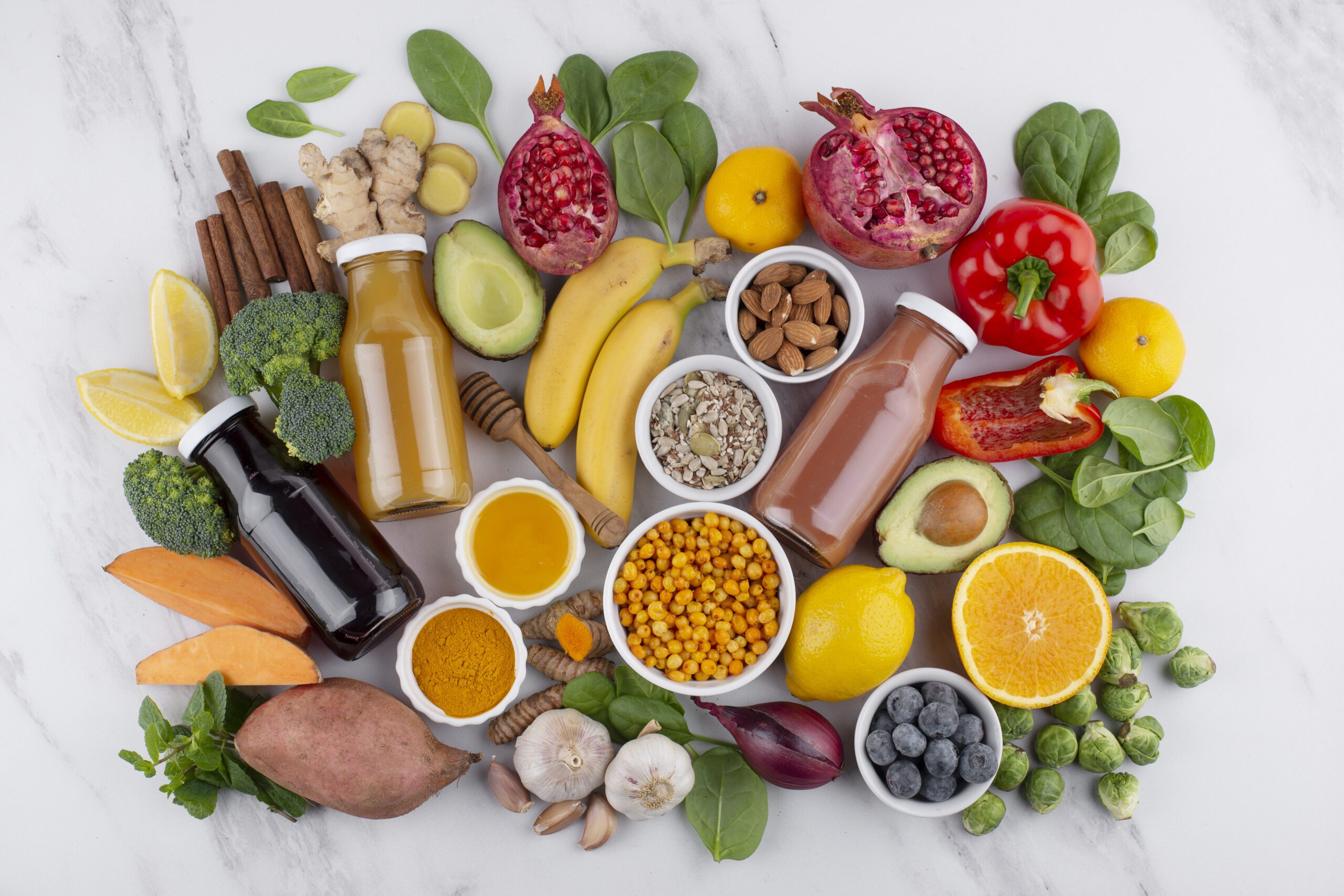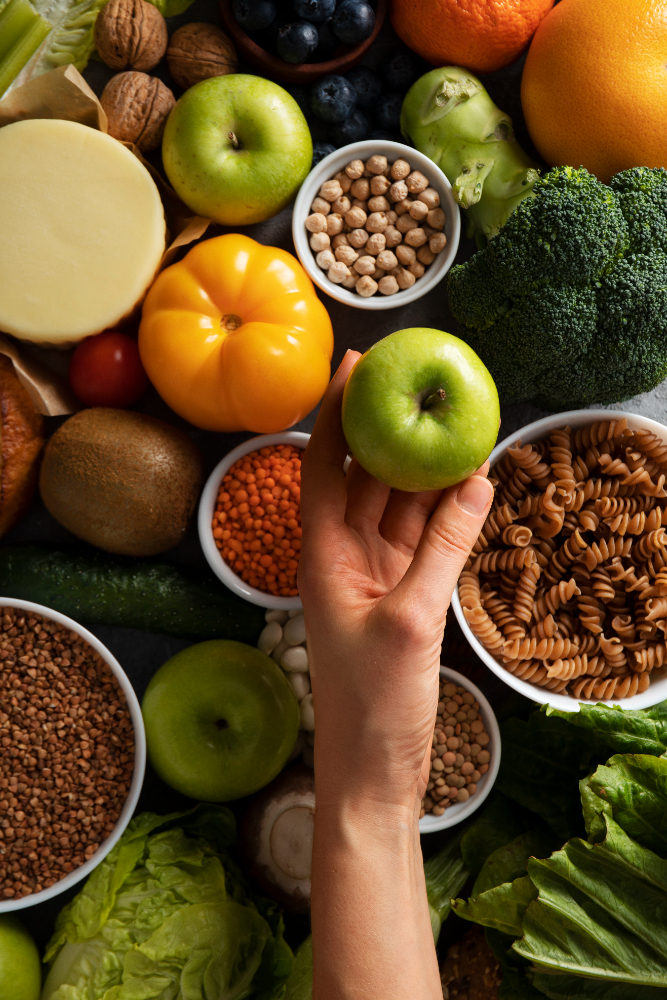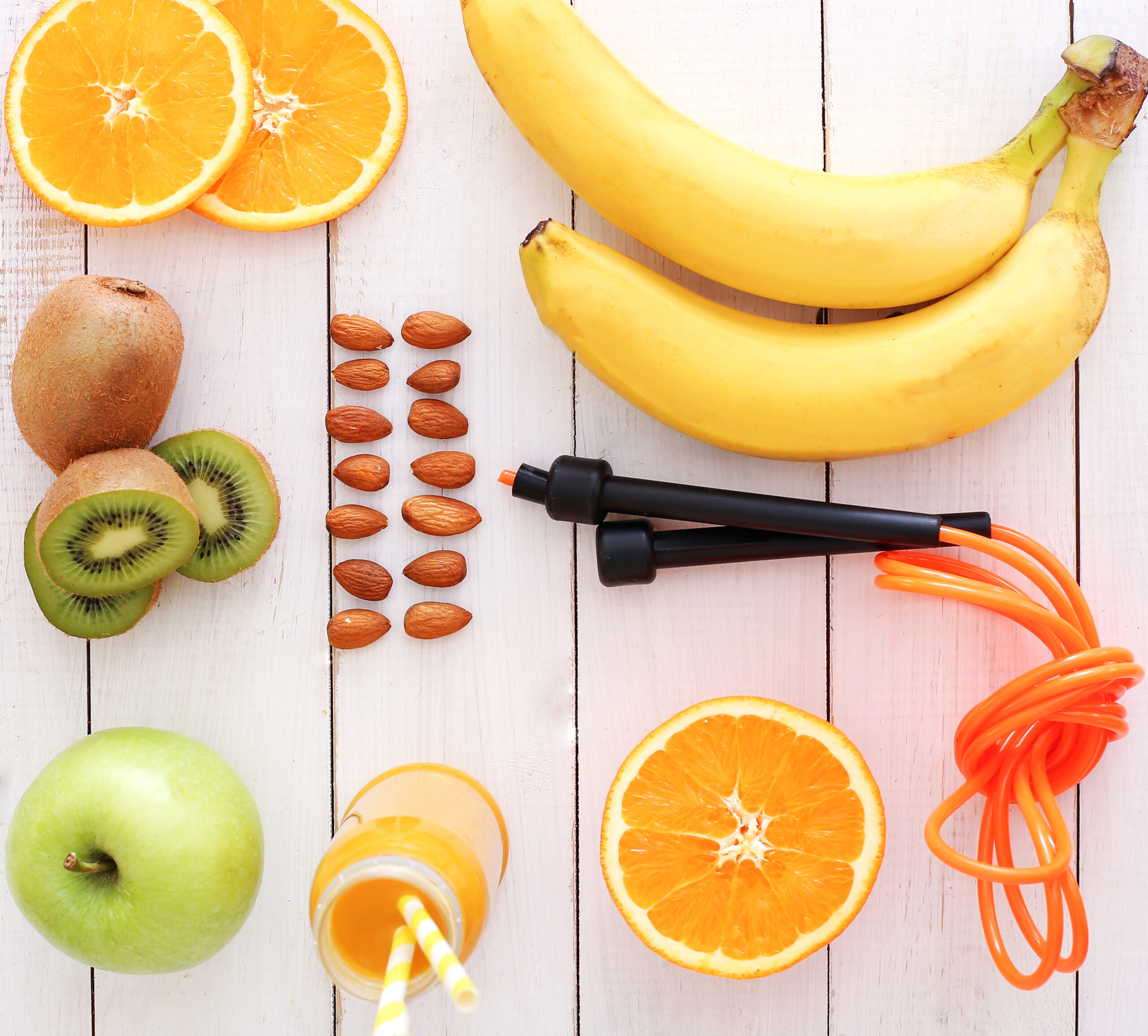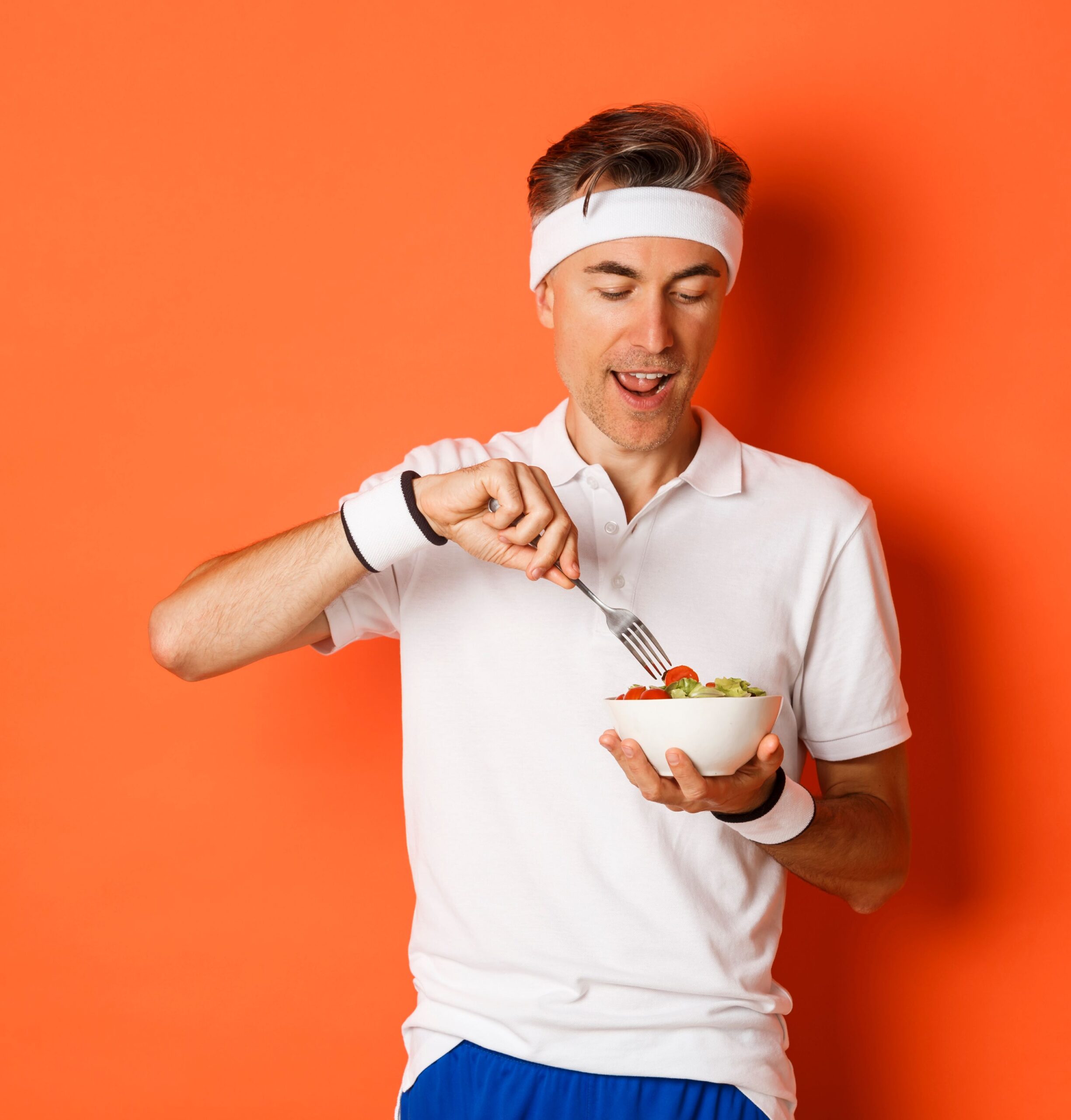1. Why Nutrition Matters
Running a half marathon demands a lot from your body. Each training session depletes your energy stores, and without proper nutrition, you risk fatigue, slower recovery, and even injury. Eating the right foods at the right times can:
• Improve endurance and energy levels.
• Enhance recovery by repairing muscle damage.
• Support immune function during intense training periods.
• Help maintain an ideal weight for peak performance.


2. Key Nutritional Components
1. Carbohydrates – The Primary Fuel Source
• Carbohydrates are the body’s main source of energy, especially during long runs.
• Include complex carbs like whole grains, sweet potatoes, and oats in your meals.
• Before long runs or races, consume carb-rich meals to “carb-load” your glycogen stores.
2. Proteins – For Muscle Repair and Recovery
• Protein is essential for repairing muscle damage caused by running.
• Aim for a post-run snack or meal with a 3:1 carb-to-protein ratio for optimal recovery.
3. Fats – For Sustained Energy
• Healthy fats provide a slow-burning energy source and support overall health.
4. Hydration – Essential for Performance
• Dehydration can lead to fatigue, cramps, and decreased performance.
• Drink water consistently throughout the day and during long runs
• Use electrolyte drinks or powders to replenish lost sodium and minerals during intense sessions.
3. Pre-Run Nutrition
• What to Eat: Consume a light meal or snack rich in carbs, low in fat, and moderate in protein about 2-3 hours before running.
• Examples:
• A banana with peanut butter.
• Whole-grain toast with honey.
• A small bowl of oatmeal with fruit.


4. Ppst-Run Nutrition
• Refuel your body within 30-60 minutes of finishing a run.
• Focus on replenishing glycogen stores with carbs and repairing muscles with protein.
• Examples:
• A smoothie with banana, berries, Greek yogurt, and spinach.
• Grilled chicken with sweet potato and a side of steamed vegetables.
5. Nutrition During Long Runs
• Runs over 60 minutes require fueling mid-run to maintain energy levels.
• Carry small, easily digestible snacks like energy gels, chews, or bananas.
• Pair these with small sips of water or electrolyte drinks to stay hydrated.
• Carry small, easily digestible snacks like energy gels, chews, or bananas.
• Pair these with small sips of water or electrolyte drinks to stay hydrated.
6. Meal Plan for a Training Day
• Breakfast: Whole-grain toast with almond butter, a banana, and a cup of black coffee or tea.
• Mid-Morning Snack: Greek yogurt with granola and fresh berries.
• Lunch: Grilled chicken or tofu salad with quinoa, avocado, and a lemon-tahini dressing.
• Afternoon Snack: A handful of nuts and an apple.
• Dinner: Baked salmon, roasted sweet potatoes, and steamed broccoli.
• Evening Snack: A protein shake or cottage cheese with a drizzle of honey.

Leave a Reply